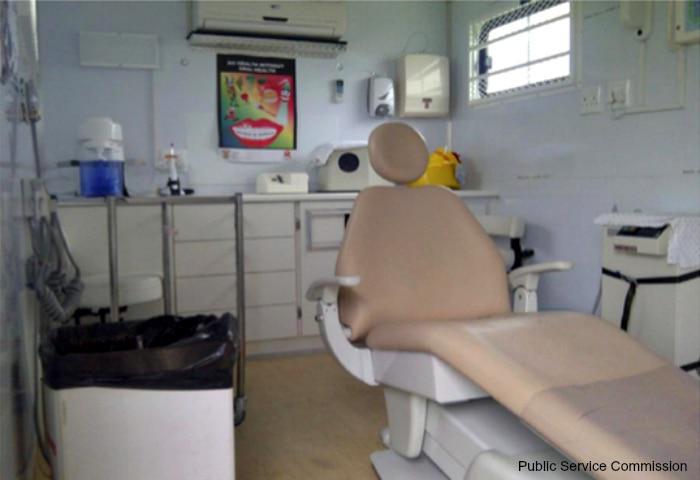South Africa to assist in Ebola response


Equipped with diagnostics and related equipment, the mobile lab will be accompanied by four NICD staff, including Janus Paweska, head of the NICD’s Centre for Emerging and Zoonotic Diseases.
“Mobile lab capacity are not common therefore there are only few countries can afford this kind of deployment,” sad Paweska speaking at a Southern African Development Community (SADC) press conference yesterday. “SADC doesn’t really need a mobile lab because we have good communications systems… this is rather required for central or equatorial Africa because of the terrain.”
Several South Africans, including at least two doctors and an epidemiologist, have already landed in West Africa to help in the response.
University of Cape Town graduate Dr Stefan Kruger is already in Sierra Leone assisting Medecins Sans Frontieres (MSF). He has already seen at least one patient die.
“We become accustomed to families being broken up because of discordant blood test results and entire households are being erased from their family trees one by one,” he said in a letter to the local MSF office. “(Cured) discharged patients are given a copy of their laboratory results and a certificate stating that they are disease-free, but many often face immense stigma in their home villages.”
The international humanitarian organisation has an international funding appeal to help support its medical work
Preparing for the worst
[quote float=”right”]”We become accustomed to families being broken up because of discordant blood test results and entire households are being erased from their family trees one by one”
The World Health Organisation (WHO) is currently meeting to discuss whether the outbreak, which has already resulted in more than 900 deaths, will be classified an international public health emergency.
SADC health ministers met yesterday in Kempton Park to discussion regional preparedness for possible imported Ebola cases. This response will include identifying additional domestic resources for outbreak preparedness, the drafting of a regional guide to Ebola response and the establishment of a regional fund to assist states in outbreak preparedness.
No cases of the haemorrhagic fever have been reported in southern Africa however South Africa has already begun preparing for possible cases. The country has continued routine temperature screening at ports and has designated several major hospitals nationwide to receive suspected Ebola cases should they arise. These hospitals include Pretoria’s Steve Biko Academic, Johannesburg’s Charlotte Maxeke Johannesburg Academic and Klerskdorp hospitals.
While neither the South African government nor the WHO has ruled out the risk of a possible Ebola case in the country, they emphasised the risk is low.
“In international travel, there is always a risk,” said WHO’s Ebola response coordinator Francis Kason. “For Ebola, what we need to know is that the risk of transmission is highest when the person already has the signs and symptoms of the disease.”
“It would be highly unusual that we would see sick persons getting on the plane and getting here,” said Kason, who added that the disease’s long incubation period means there is however a chance that people could travel when already infected.
Affected West African countries like Sierra Leone, Liberia and Guinea have already begun screening passengers exiting and entering the country and collecting detailed histories to evaluate whether travellers have recently been in contact with a suspected case, according to Kason.
An edited version of this story first appeared in the Pretoria News
Author
Republish this article
This work is licensed under a Creative Commons Attribution-NoDerivatives 4.0 International License.
Unless otherwise noted, you can republish our articles for free under a Creative Commons license. Here’s what you need to know:
You have to credit Health-e News. In the byline, we prefer “Author Name, Publication.” At the top of the text of your story, include a line that reads: “This story was originally published by Health-e News.” You must link the word “Health-e News” to the original URL of the story.
You must include all of the links from our story, including our newsletter sign up link.
If you use canonical metadata, please use the Health-e News URL. For more information about canonical metadata, click here.
You can’t edit our material, except to reflect relative changes in time, location and editorial style. (For example, “yesterday” can be changed to “last week”)
You have no rights to sell, license, syndicate, or otherwise represent yourself as the authorized owner of our material to any third parties. This means that you cannot actively publish or submit our work for syndication to third party platforms or apps like Apple News or Google News. Health-e News understands that publishers cannot fully control when certain third parties automatically summarise or crawl content from publishers’ own sites.
You can’t republish our material wholesale, or automatically; you need to select stories to be republished individually.
If you share republished stories on social media, we’d appreciate being tagged in your posts. You can find us on Twitter @HealthENews, Instagram @healthenews, and Facebook Health-e News Service.
You can grab HTML code for our stories easily. Click on the Creative Commons logo on our stories. You’ll find it with the other share buttons.
If you have any other questions, contact info@health-e.org.za.
South Africa to assist in Ebola response
by lauralopez, Health-e News
August 7, 2014
MOST READ
Social media for sex education: South African teens explain how it would help them
Prolonged power outage leaves hospitals in the dark for two days
There’s more to self-care than scented candles or massages, it’s a key public health tool
Access to clean water and stable electricity could go a long way to addressing rising food poisoning in SA
EDITOR'S PICKS
Related


One pill a day to keep HIV at bay for thousands of sex workers

